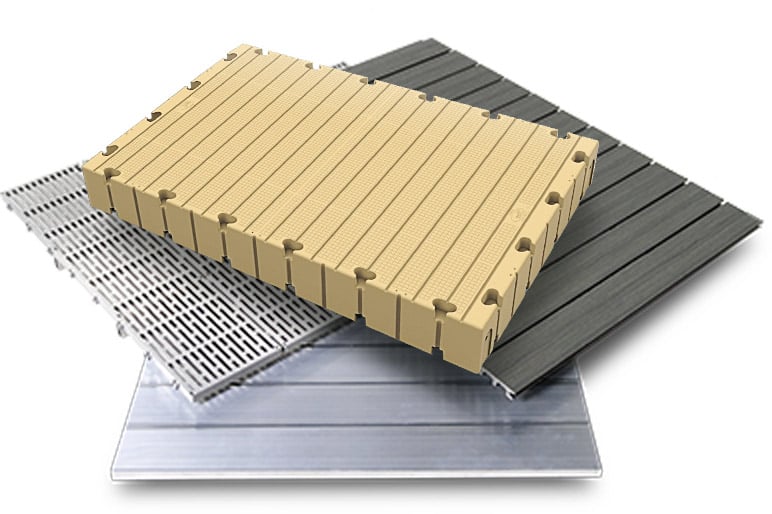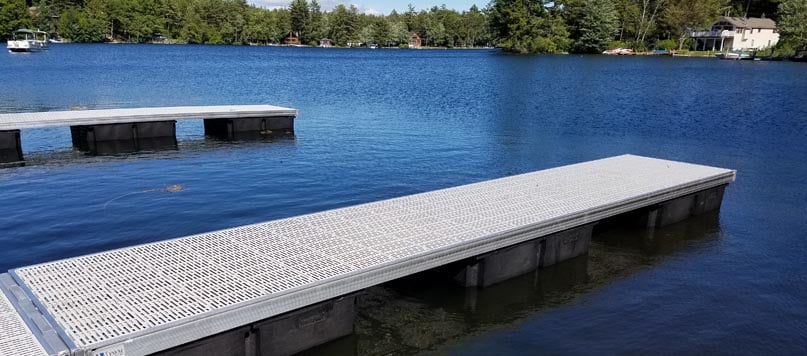Floating Docks vs. Stationary Docks: Which One is Right for You?
Docks serve important purposes in almost every waterfront application, whether you’re building a place for your family to fish on your own private pond or you’re giving an entire city access to a beautiful ocean view. Of all the docks available to you, the most popular are either floating docks or stationary docks. Learning more about the differences will help you make better decisions for your unique application.
The Major Differences
A stationary dock is one that is mounted at one precise level. Such a dock rests on top of a foundation called “pilings” that are fixed into the bottom of the body of water, whether it is a pond, lake, river, or even ocean. The dock does not rise and fall with the tides or with rising water levels. A floating dock, on the other hand, moves with the tide or water level. Instead of being permanently fixed to the bottom of the body of water, it rests on one of several types of floats, which keeps the dock buoyant and allows it to move.
Which Should You Choose?
Now that you understand the basic differences between floating and stationary docks, it helps you better understand which dock is best for specific applications. Stationary docks are better for people who want to build access to lakes, ponds, or even rivers that maintain a consistent water level and relatively shallow depth, a stationary dock is likely to be the most effective and most affordable option. Conversely, if the water is very deep, or if the changing tides or large amounts of rainfall/snow melt trigger rising and falling water levels, a floating dock may be the best choice.
To learn more about the various types of stationary and floating docks available today, to ask any question you might have, or to get a quote for a dock that meets your specific needs, contact your local dock experts. They will be able to provide you with the best possible advice and point you toward the right products for your individual needs, no matter how big or how small your project.


